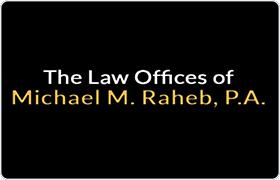 Immokalee Criminal Lawyers, Florida
Immokalee Criminal Lawyers, Florida
Sponsored Law Firm
-
 x
x

Click For More Info:
-
Law Offices of Michael M. Raheb P.A.
2423 First St Fort Myers, FL 33901» view mapCriminal Defense Law Legal Problem? Call Us 24/7
At the Law Office of Michael M. Raheb, we strive to ensure each of our clients receives the individual attention and representation necessary to obtain an optimal outcome.
800-890-8981
Sponsored Lawyers
1-2 of 2 matches
Business, Real Estate, DUI-DWI, Estate, Lawsuit & Dispute
Stephen McGuire is a 2012 graduate of Ave Maria School of Law. Prior to law school, he graduated summa cum laude from West Virginia University in 2005, with a degree in political science, and earned an MBA with high honors from Duquesne University in 2007. He is also a ten-year veteran of the United States Army. Stephen's practice is primarily focused on business and real estate law, appellate practice, and general civil litigation. He provides escrow and closing services for a high percentage of the brokered business transactions in Lee County, Florida, and serves as registered agent for hundreds of Florida corporations and limited liability companies. Additionally, he provides general counsel services to numerous local businesses and franchises. Attorney McGuire is admitted to practice in Florida, West Virginia, the Middle District of Florida, the 11th Circuit Court of Appeals, and the United States Supreme Court.
(more)



 Michael M. Raheb Fort Myers, FL
Michael M. Raheb Fort Myers, FL Practice AreasExpertise
Practice AreasExpertise

